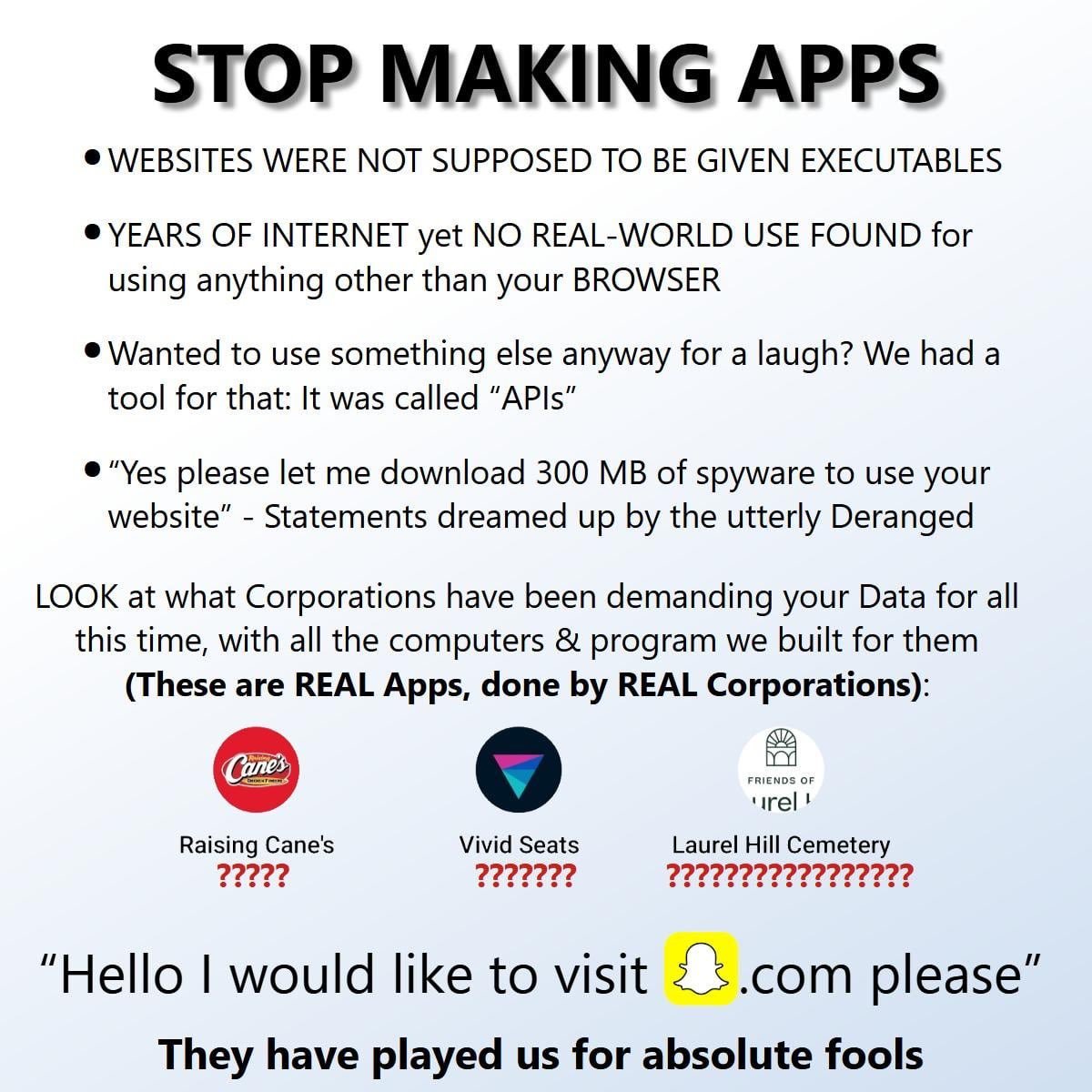this post was submitted on 14 Aug 2024
1117 points (100.0% liked)
196
16998 readers
719 users here now
Be sure to follow the rule before you head out.
Rule: You must post before you leave.
If you have any questions, feel free to contact us on our matrix channel.
founded 2 years ago
MODERATORS
you are viewing a single comment's thread
view the rest of the comments
view the rest of the comments

Well yeah. You have to download the assets on first load to cache them, just like you have to download an app first to use it. And an ideally designed app should perform as well as a website since it has access to all the low level optimization and performance an app entails. The point of the post is that most services don't actually warrant the benefits you get with an app: namely, easy offline access, higher performance, and native feel/integration with the system. If your whole service is online anyways and every time I open the app it takes a moment to fetch data, it isn't a considerable improvement over a web experience (with cached assets) and you still can't use it offline. Like, why do I need an entire app to use your shitty CRUD service (sometimes it's not even CRUD, just R). If I use it so infrequently that my cache gets invalidated, I could care less about a couple seconds initial load time.
Obviously if you use something everyday a slick app is a nicer experience than a website. There's nothing wrong with lemmy clients, even though the web client is gonna work fine on mobile and run fairly fast. The issue is when companies release shitty apps that don't provide any more value as an app as they would as a plain old website, purely so they can get a persistent spot on a user device and mine more data, and then push a ton of annoying banners and feature blocks to mobile web users to get them to download the app.